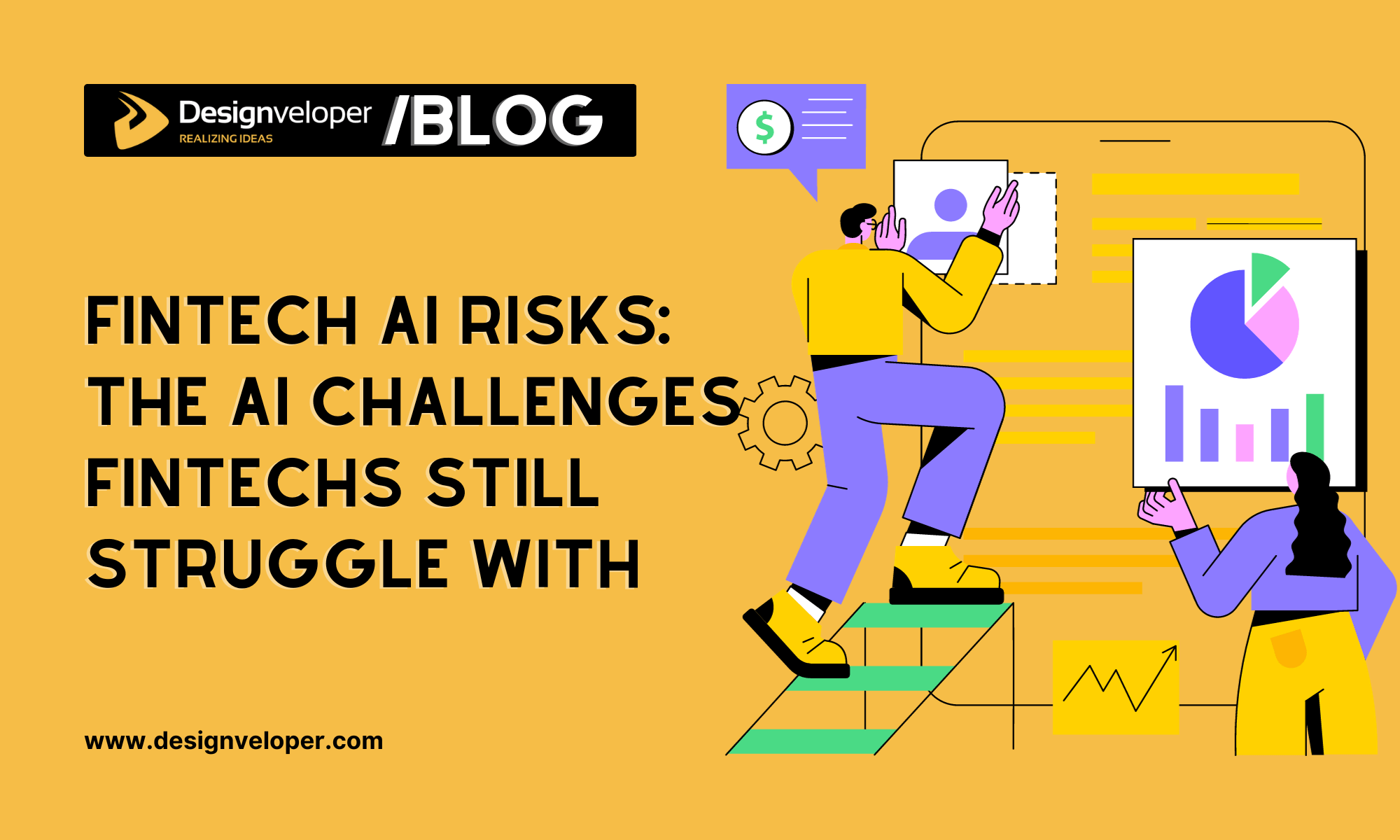
Artificial intelligence has become a part of our lives, and the fintech sector is no exception. Nowadays, when dealing with financial apps, we often encounter artificial intelligence for tasks like identity verification. These tools undoubtedly make our lives easier, but, like any technology, they come with challenges. While AI advances the fintech industry, it also brings about certain risks that are not always openly discussed.
In today’s discussion, we’ll delve into the challenges of fintech using and implementing artificial intelligence in its products. More importantly, we’ll explore practical solutions to navigate these challenges. Take a few minutes to read through this article, and you’ll gain insights into how to protect both your business and users from potential harm.
Why Implement AI in FinTech?
#1. Enhanced operational efficiency and precision
Implementing AI into fintech streamlines workflows, elevates effectiveness, and ensures unparalleled accuracy. AI fintech algorithms adeptly analyze extensive datasets, facilitating swift, precise decisions in domains such as credit assessments and investment strategies.
#2. Data security reinforcement
AI plays a pivotal role in fortifying data protection measures within fintech organizations. Cutting-edge machine learning models proficiently identify and counter potential cybersecurity threats, safeguarding the confidentiality and integrity of sensitive user data.
#3. Customer engagement
The assimilation of fintech and AI enriches customer interactions by delivering personalized services and efficient problem resolution. AI-powered chatbots provide instant and tailored responses, providing a seamless and gratifying user experience.
AI Implementation Advantages in Fintech
- Real-time decision-making prowess: AI facilitates prompt decision-making by efficiently processing extensive data. This capability proves particularly beneficial in sectors like investment strategies, where decisions’ timeliness is paramount.
- Risk mitigation and fraud prevention mastery: AI-driven models excel in mitigating risks and detecting fraudulent activities. Through continual learning and adaptation, these models pinpoint anomalies and potential risks, ensuring the security of financial transactions and safeguarding both businesses and users.
- Tailored financial offerings: Fintech and AI empowers entities to provide personalized financial services based on user preferences and behaviors. This not only heightens user satisfaction but also fosters enduring loyalty.

#1. Machine Learning Biases
In fintech, integrating machine learning into your business is a compelling prospect. It can enhance operations, better understand customer needs, and streamline user experiences. However, it’s crucial to acknowledge that machines, despite their intelligence, are not infallible and can make errors. Machine errors require proper training, unlike human mistakes which can be resolved through dialogue or advice. The risk arises when biases in the data used for training artificial intelligence go unchecked, potentially impacting your business and making it look like darkside developments.
It’s imperative to implement safeguards against biases and errors to tackle this challenge. One effective strategy is to scrutinize the data provided to artificial intelligence meticulously. Seek external expertise and impartial evaluations to ensure objectivity in data analysis. Avoid letting subjective opinions influence the data, and consistently explore new and improved strategies for developing and deploying artificial intelligence. This proactive approach safeguards your business and enhances the user experience, protecting against potential misuse by fraudsters employing similar tactics.
#2. Transparency Deficit in Credit Scoring
The lack of transparency in AI-powered credit scoring systems for fintech are serious trouble as it can lead to customer mistrust and regulatory challenges. Fintech companies must strategically address this challenge by designing user-centric explainability features. These features provide insights into the factors influencing credit decisions, fostering transparency, and building user trust.
Design user-friendly interfaces that offer transparent insights into decision-making processes. Utilize visual tools to simplify intricate algorithms, helping users grasp and have confidence in the system.
FURTHER READING: |
1. FinTech Ecosystems: A Detailed Guide to Transform Finance |
|
|
#3. Fraud Detection and KYC Investigations
Detecting fraud in finance, a key use of AI, includes KYC (Know Your Customer) investigations, confirming client identities and evaluating potential risks. The swift evolution of AI, especially with Natural Language Processing (NPL) in KYC, empowers institutions to identify risks in business relationships and supply chains efficiently.
Despite benefits, AI use poses risks like privacy concerns and discrimination. Establishing robust protocols and partnership with fintech integrations vendors is crucial to safeguard sensitive information and maintain customer trust. Upholding data security diligence allows effective AI use without compromising privacy. Addressing discrimination risk involves rigorous testing and validation of AI algorithms. Additionally, fintech integration services offer advantages like enhanced capabilities and cost-effectiveness, but fintechs must navigate associated risks, requiring careful vendor selection aligned with security standards. A proactive approach is vital to leverage AI benefits while minimizing risks from vendor integration.
Recommended reading: AI Chatbots in Banking: Transforming the Banking Experience
#4. Navigating Regulatory Ambiguities
The absence of clear regulations in AI utilization can embrace financial services and poses a considerable challenge to fintech enterprises. Proactively navigating ethical and legal frameworks becomes imperative. Staying informed about evolving regulations and embedding ethical considerations into AI development ensures compliance and ethical usage aligned with potential regulatory effects.
#5. Guarding Against Data Breaches
Mix of fintech and AI solutions frequently entail sharing delicate information, heightening the possibility of data breaches. Fintech firms should actively establish strong data security measures for apps to shield against these risks.
#6. Building Trust in AI-Driven Financial Advice
Consumer mistrust in AI-driven financial advice can undermine the value proposition of fintech companies. Fintech firms should focus on personalizing explain ability and recommendations to mitigate this challenge.
Tailor AI-powered financial guidance by customizing explanations and suggestions for individual users. Create user-centric interfaces that prioritize transparency and align with users’ financial goals and preferences.
#7. Ethical AI Governance in Robo-Advisory Services
Fintech firms should set up ethical AI governance frameworks to steer the creation and use of robo-advisors. Create and follow transparent ethical standards for robo-advisory services. Conduct strategic workshops to match these standards with customer expectations, ensuring ethical AI practices in financial advice.
#8. Adapting to Market Changes
Excessive dependence on historical data in AI-powered investment strategies may result in less-than-optimal performance. To avoid fintech serious trouble companies should embrace dynamic learning models that adapt to changing market conditions.

Integrate flexible learning models that adjust to shifts in market conditions. Leverage strategic thinking to create models that continuously learn from real-time data, ensuring investment strategies remain relevant and practical.
Conclusion: Proactive Strategies for a Dynamic Future
Fintech companies must proactively address these AI challenges. By prioritizing ethical considerations, enhancing transparency, navigating regulatory frameworks, and embracing human-centric design, fintech firms can mitigate challenges, build trust, foster innovation, and deliver value in the evolving landscape of AI-driven finance.






Read more topics





























































